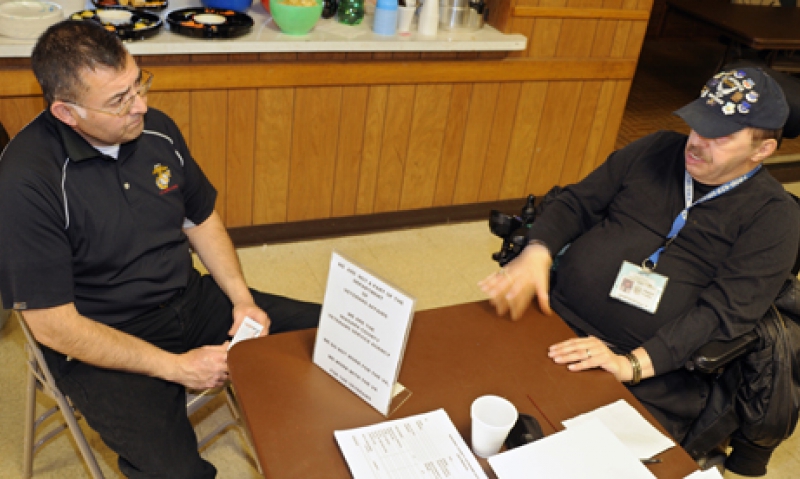
Electronic claims processing, Post 9-11 GI Bill enrollment problems among issues discussed during quarterly meeting.
Deputy Director Ian de Planque of the Legion's of Veterans Affairs and Rehabilitation Division recently attended quarterly meetings with the Central Office staff of the Department of Veterans Affairs. These meetings, conducted in conjunction with veterans service organizations, provide a forum for the discussion of ongoing programs within VA, as well as provide an opportunity for VSOs to address concerns on a regular basis. The meeting revolved around updates of progress on various electronic claims processing projects, the measures VA is taking to address previous problems with enrollment in the Post 9-11 GI Bill, and extensive updates from VA Associate Deputy Under Secretary for Field Operations Diana Rubens. VA currently is implementing a multitude of regional pilot programs aimed at addressing the current business model of operations and attempting to integrate technological, as well as structural, improvements to facilitate a more effective claims process. The four major pilot programs include the implementation of "Lean Six Sigma" management techniques in Little Rock, Ark.; the Virtual Regional Office model in Baltimore; the business transformation lab in Providence, R.I., that is exploring the challenges of an entirely paperless office environment; and a pilot program in Pittsburgh that focuses on increased phone contact with veterans to provide more clarity in the claims process, as well as to test templates for physicians, both private and VA, to provide medical information to VA in a more useable form. Early indications from these pilots is in an assessment stage. It is believed that while no one program has proven perfect, and each have pluses and minuses, elements from all programs may be combined into a new, more comprehensive operational model. de Planque pressed VA for more information on VA's new work standards for veterans service representatives, which VA is in the process of implementing nationwide. Initial information regarding these changes to the work-credit standards has indicated a greater focus on moving the claims along in the development process with less individual credit for actions that could sometimes result in overdevelopment. However, despite assurances to the contrary by VA staff, there was no obvious focus on the quality component of claims processing. The American Legion and other VSOs are seeking copies of the new work standards from VA for analysis to see how quality is being addressed. Recent testimony earlier this month by The American Legion stressed that the obvious indicators for work credit in the VA system stressed quantity over quality, and that VA must reform these standards to ensure that the quality of processing in the claims was on equal footing with the timeliness and quantity of claims processed.
- Veterans Benefits

